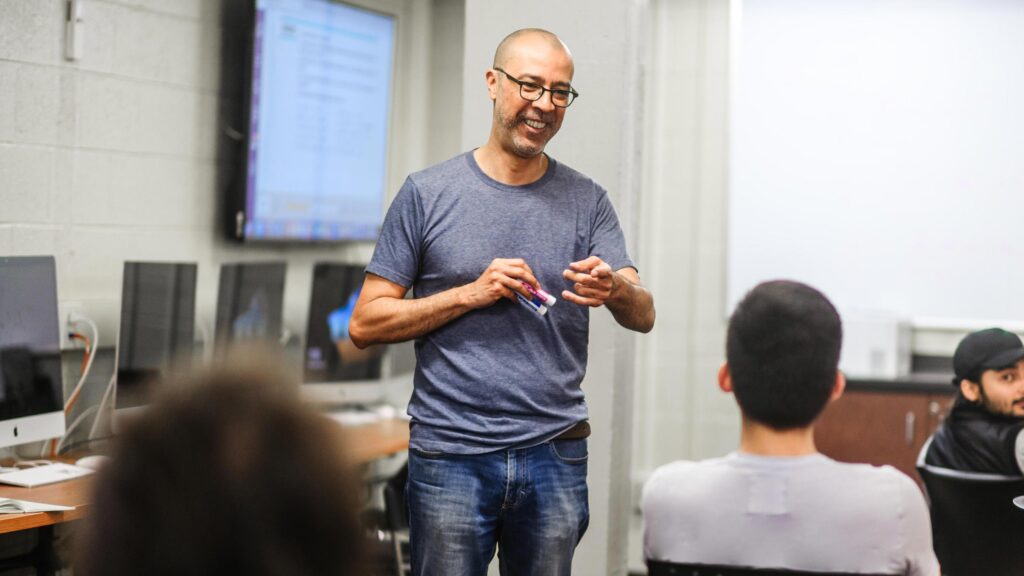Overview
- Degree Level
- Undergraduate
- Degrees Offered
- Bachelor of Arts, Bachelor of Science
- Department
- Computer Science and Mathematics
- school/college
- College of Arts and Sciences

Arcadia University’s mathematics programs are designed to help students develop problem-solving skills as well as the theoretical insight needed both for applications and graduate study. Mathematicians learn to look for patterns, find connections between different ideas, apply abstract notions to concrete settings, and uncover creative solutions. The problem solving and analytical skills that you will develop will help prepare you not only for the great many careers that use mathematics but also for graduate school programs in many different fields.
You will have unmatched opportunities at Arcadia to deliberate data-driven analysis and decision-making processes.
You are taught to think quantitatively, analytically, and independently through a highly customizable program and stand out from others with these unique opportunities:
The Bachelor of Arts degree program prepares students for teaching mathematics at the elementary and secondary school level and for jobs in industry and business. It can serve as a second major for students specializing in other fields.
The Bachelor of Science degree program involves a deeper investigation of both mathematics and applied sciences and prepares students for graduate study, teaching and work in programming and research. Career options include business, government, industry, teaching positions at all levels from elementary through university, and actuarial science positions.
7 Mathematics Courses
1 Computer Science Course
1 Capstone Course
2 Mathematics Electives at the 300 level
8 Mathematics Courses
1 Computer Science Course
1 Capstone Course
3 Mathematics Electives at the 300 level
Required Course
Gain an understanding of computer systems, the use of structured programming concepts, algorithm development, debugging and data analysis. It is taught with a high-level programming language. Currently the language is Java.
Required Course
Study combinatorics, discrete and continuous random variables of one and two dimensions, expectations, commonly used probability models, and normal approximation.
Required Course
Gain facility with the two major types of mathematical writing: clear, concise proofs written for other mathematicians; and explanations of mathematics aimed at non-technical audiences.
Required Course
Study linear algebra including essentials of finite-dimensional vector-spaces, linear transformation, matrix algebra, systems of linear equations, and determinants.
